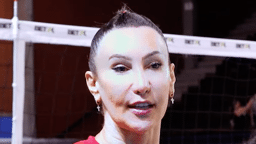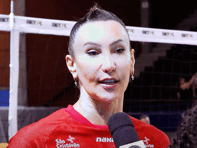(This story was written in 2003).
By: Bob Brigham
The Diamond Angle
(Reprinted by permission of The Diamond Angle. This story was written in 1995).
It was late in the 1977 season. Dusty Baker of the Dodgers was rounding third, heading for home, having just hit his 30th home run. And the Dodgers were heading for a National League pennant. The on-deck hitter was Glenn Burke, enjoying his second season in the big leagues. As Baker crossed the plate Burke raised his hand. Baker responded by raising his. The two hands slapped together and a bit of history was made. The first high-five in baseball.
Fast forward to 1995. Baker is the successful manager of the San Francisco Giants. Burke is dead, the victim of AIDS.
He spent the last years of his life wandering the streets of San Francisco, especially Castro Street, the heart of the gay community. Yes, the onetime Dodger outfielder made another kind of baseball history in 1982, two years after his premature retirement from the game, when he became the first player to openly declare his homosexuality. So far there has not been a second, although former umpire Dave Pallone, also openly gay, says there are and have been more. [Editor’s note: This pre-dates Billy Bean]
“He was a hero to us”, said Jack McGowan, former sports editor of the San Francisco Sentinel, a gay newspaper. “He was … real. He was athletic, clean cut, masculine. He was everything that we wanted to prove to the world that we could be.”
McGowan, a long-time friend of Burke’s, was joined in his praise of the product of Oakland sandlots by Tommy Lee, a Castro district restaurateur and another old friend. “People were just honored to he in his presence. My God, a major league player, and he’s gay.”
In August 1994 I read a “Where are they now?” type story in the L.A. Times. Burke was suffering from AIDS, an 0-2 count anyway you look at it. Usually the gay community rallies around an AIDS victim. Certainly this would be expected for a hero.
But there were no helping hands for Glenn.
Gays come in as many varieties as straights. Artists, businessmen, doctors, construction workers, teachers. And professional athletes. And don’t forget panhandlers, street thugs, drug users and felons. Our “hero” had metamorphosed into the latter group. Once the toast of any Castro Street bar he walked into, he was now welcome in none of them. He was more apt to be seen hanging around the door, badgering patrons for a handout. Loan? Forget it. Glenn doesn’t repay, was the word in the neighborhood.
Five minor league seasons in which Burke batted over .300 plus exceptional defensive skills caused no less a judge of baseball talent than the late Jim Gilliam, then a Dodger coach, to herald him with a “Next Willie Mays” tag. We’ve heard that one before. Of course, he wouldn’t have needed a Maysian career to have made a difference for the Dodgers. But in 1978, his third year with the club, he was traded to Oakland for a washed-up Bill North. The Dodgers said it was because he had not lived up to his minor league promise. His teammates, feeling he had made good progress toward star if not superstar status, were angry at management for making the trade.
|
|
Burke felt the that club knew about his sexual orientation. The Dodgers, one of the most image-conscious organizations in an image-conscious sport, would not have tolerated a gay ballplayer in the ’70s. They might in today–if he could hit .500 with 150 home runs. But they would have to come up with a cover story. General Manager Al Campanis once suggested that it would be a good idea if Burke got married.
In his autobiography “Out At Home,” written with Erik Sherman, Burke said that he felt his close association with Spunky Lasorda was something Spunky’s dad could not tolerate. Although the rest of the world accepts that the Dodger manager’s son was gay and died of AIDS, Tommy is in total denial on both counts.
“The Next Willie Mays” took his hat and glove and went to Oakland, but did not enjoy his year and a half with the A’s. The team was struggling in the late ’70s. Also, Burke felt his secret was not safe in his hometown. He retired before the end of the ’79 season.
The retirement was brief. He reported for spring training in 1980, but injured a knee and spent the season with Triple-A Ogden. Right or wrong, he thought baseball no longer wanted him because of his sexual orientation, and he retired for good at the end of the ’80 campaign.
Did baseball give up on Glenn Burke or did he give up on baseball? Whichever, Alice Burke thinks it was the beginning of the end for her son.
Baseball Was His Life
“Because that was his life, baseball. And I think after he couldn’t play any more, he felt that was the end of his life. I don’t think he cared much after that,” she said.
Burke tried advertising sales after baseball, worked for a while as a doorman, but soon fell into a pattern of depending on others. He admitted, “I was spoiled rotten, so I got lazy.”
Too bad. In the years right after his retirement his considerable athletic talent made him a superstar in Bay Area recreational softball and basketball leagues. Bar owners paid him to play for their softball teams. If there had been an award for “Best Gay Athlete in America,” most of his friends feel he would have won it hands down. Nor was athleticism the only thing going for him. “Glenn had a great sense of humor,” recalls Lee the restaurateur. “He was the life of the party everywhere he went.”
But in 1987 he was hit by a car while crossing the street, suffering broken leg. An out-of-court settlement brought him some money, but it was soon gone. He was never again the athlete he had been.
His drug use increased and his behavior became more erratic. The man friends once flocked to was now avoided by them. The big guy they once looked to for protection now became an object of their fear.
In 1991-92 he spent seven months in San Quentin for grand theft and possession of a controlled substance. AIDS and drugs seemed to be in a macabre contest to see which could claim this once proud man as its victim.
Every once in a while I see something in the paper about J.R. Richard and his life since the near-fatal stroke that ended his career in 1980.
Don’t compare Richard with Burke, you say. He was an established star who might he in Cooperstown by now had it not all ended so tragically for him 15 years ago. Burke’s candle, on the other hand, burned briefly and not too bright. Besides, others might add, J.R. is not gay.
But they do share the fate of being unable to manage life without baseball. It must have been about 1983 that I read a piece by a sportswriter who had visited the Houston flame-thrower. J.R. just sat around the house all day eating and watching TV. He had ballooned to about 300 pounds. More recently Kenny Hand of the Houston Post wrote that Richard now lives under a Houston freeway and is penniless.
After high-fiving Dusty Baker way back in ’77, Burke stepped up to the plate and also hit a homer. The pitcher? J.R. Richard.
Baseball has brought me many happy moments. As I think about these two men I remember it has also brought me a few very, very sad ones.
Glenn Burke spent the last months of his life at his sister Lutha’s Oakland apartment. The AIDS, first diagnosed in January 1994, had taken his once magnificent physique to a lesion-scarred, wasted 150 pounds. Pain and fatigue were his constant companions.
A few old friends would stop by to say hello. But they all knew they were really saying good-bye. When the end came in the spring of this year, it was not a time for high fives. It was just as well. The man who greeted Dusty Baker at home plate in 1977 could barely lift his arm.







































